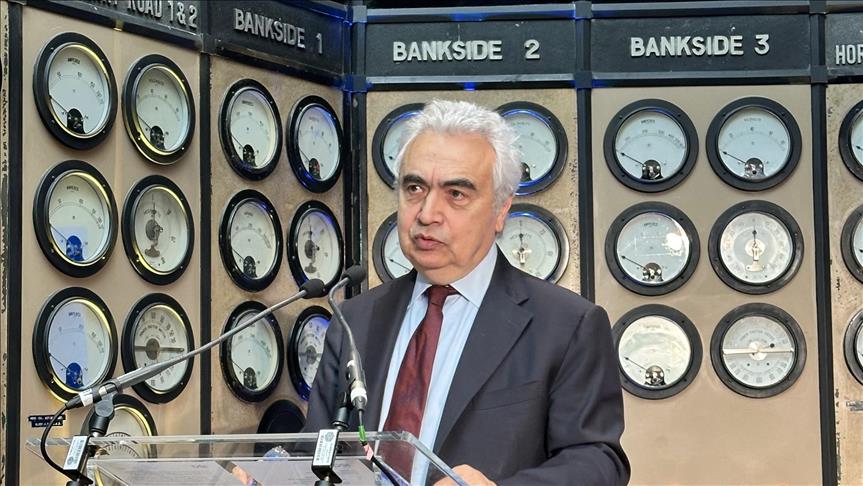The head of International Energy Agency (IEA) announced that a new financing model is underway to help meet $2 trillion clean energy investment needs in developing countries and conveyed that a global agreement on how these needs will be met could be one of the most critical outcomes at the upcoming United Nations (UN) climate summit in Baku.
Azerbaijan is the host country of this year’s UN climate negotiations, COP29, which will be held in Baku between Nov. 11-22, 2024.
In the run-up-to COP29, the IEA and COP29 Presidency have been co-hosting a high-level dialogue for scaling up financing for clean energy, especially in emerging and developing economies.
‘Annual clean energy investments in these countries need to increase by sixfold to around $2 trillion,’ Fatih Birol, the IEA chief, told Anadolu in London.
Development and construction banks including the World Bank, International Finance Corporation, the European Bank for Reconstruction and Development, and private sector finance institutions participated in the dialogue.
‘We all are now working together to come up with a financing model and want to create a framework until our next meeting which will be held in the context of the UN General Assembly,’ Birol said adding that the IEA has been declared as the strategic partner of the COP29 Presidency.
According to the IEA’s latest energy investment report, global energy investment is projected to exceed $3 trillion this year for the first time with around $2 trillion to be invested in clean energy technologies.
However, developing countries excluding China account for only 15% of total investments in clean energy technologies, which surpassed $300 billion for the first time.
Emerging and developing countries are home to around two-thirds of the world’s population.
Clean energy investments in China are expected to reach $675 billion, followed by Europe and the US with $370 and $315 billion, respectively. The investment projections indicate that these three major economies account for more than two-thirds of global clean energy investments and also underline the major imbalances in international capital flows.
A new report from the World Economic Forum also warned that clean energy investments continue to be concentrated in China and advanced economies, underscoring the need for financial support in developing countries by advanced nations.
Birol said one of the major topics in the discussion is how to identify countries’ historical and current responsibilities for global warming.
They aim to establish a division of roles among countries and especially international development banks including the World Bank, IFC and Asian Development Bank, he added.
– 3 new global pledge suggestions
One of the major outcomes of last year’s COP28 summit was the agreement of over 100 countries to triple renewables and double energy efficiency improvements by 2030, two pledges suggested by the IEA during the discussions held with the COP28 Presidency, the UAE, ahead of the summit.
Birol said that enablers are needed to deliver on the ‘tripling and doubling’ commitments.
Countries set key goals for the first time in Dubai last year with the aim of keeping the Paris Agreement target of limiting global warming to 1.5 C within reach. Tripling renewable energy capacity by the end of 2030 was hailed as one of the most important major pledges at the COP28 summit.
This pledge requires global installed renewable capacity to reach at least 11,000 gigawatts by 2030.
Together with Azerbaijan’s government, Birol said they are working on suggesting three new global pledges.
‘One of them will be on batteries and how global battery capacity should be increased by 2030. The second is grids and the third is on reducing methane emissions,’ he said adding that the methane emissions pledge is aiming to unite countries including Kazakhstan, Tajikistan, and others in the region led by Azerbaijan.
Birol predicts two critical outcomes for this year’s COP29 summit.
‘One of them is a global agreement on these three new pledges. And the second is adopting the new finance targets and having an agreement on how these targets could be reached,’ Birol said.

